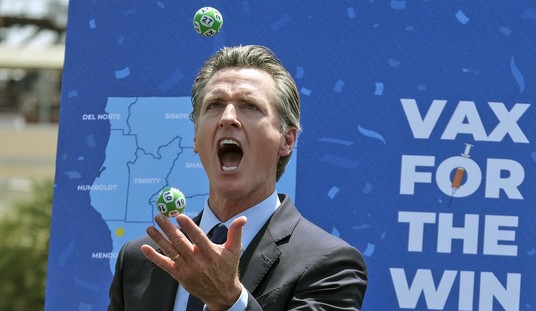Is poetry really dead, as many have claimed? There is little doubt that it has fallen on evil times. Perhaps there are just too many poets jammed in narrow confines, like an overcrowded elevator going down. This is not to imply that we lack excellent poets, but rather that there are a plethora of bad poets crowding the ambience — bad poets drive out good, as Gresham might have said — and that most of what is being written and spoken by presumptive poets today bears no affinity to poetry.
Aesthetic objects like poetry are hard to define with precision, and how we know them to be genuine is equally elusive. Often one relies on somatic responses or their metaphorical equivalents. Emily Dickinson wrote that if “it makes my whole body so cold no fire could warm me I know that is poetry.” In a reverse figure, Leonard Cohen said, in the mode of Dierks Bentley’s “Burning Man,” “Poetry is just evidence of life. If your life is burning well, poetry is just the ash.”
Poetry can certainly have an effect on the receptive reader, but such reactions may be mercurial, whimsically impressionistic or indefensibly subjective. Here is a succinct description of the medium that is somewhat more objective: a poem is a formal assembly of words contained within a recognizable compass and characterized by seriousness of purpose, verbal elegance or aptness, discursive energy, metaphorical vitality and analytic structure. It attempts to find a way to acknowledge the tempestuous world of everyday life, but also to contain the near-chaotic blizzard of ordinary experience in a strict linguistic artifact, to tame it, as it were. The need is always to correlate the phenomena of experience with the struggle for coherence, meaning and structured order. One thinks of Poe’s dictum in The Poetic Principle that “the truly imaginative mind is never otherwise than analytic.”
The practice of Emily Dickinson — “higgledy-piggledy,” as the fine English poet Wendy Cope depicts it — is pertinent. Time is fluid, but the moment is fixed in exacting verse. Experience is formless, its expression in verse, latticed. Cohesion is a function of psychological valence, the contours of the sensibility as it intuits, absorbs and suffers the world. At the same time, one must be careful that the post-modernist emphasis on self does not obscure and overwhelm the desideratum of craft or, let’s say, the decorum of the artifact. A disheveled life — Tracey Emin’s bed — is not the content of art.
When honest and eloquent language in general is not valued, poetry with its insistence on le mot juste, verbal resonance and cultural memory — including the need for concentration in an Internet/Facebook/Twitter world awash in facile verbiage — must obviously sink into decline. After all, in an age of fake everything, why should poetry be an exception? The true poet would have to be a prodigy of monastic virtue, eschewing the apocrypha of his nominal peers.
The majority of poets today are little interested in connecting with the common or educated reader, and for the most part are devoid of the skill to say anything memorable or quotable. The only option, then, is to fall back on theory, whether manifesto-driven or a sort of hobby-horsemanship. By theory I mean a critical blueprint governing subject and method as well as a prior ideological agenda to be expressed in verse. In either case, the former takes precedence over the latter. The language of the poem tends to be either didactic or decentered, hortatory or disruptive. Much-acclaimed Ann Lauterbach is typical, rejecting “classical syntax, the logic of cause and effect, of an assumed relation between subject and object.” Like many of her congeners, she is all for “rupture” and “gaps.”
Theories of poetic composition have probably existed since the first euphonious grunt uttered by some Lascaux proto-poet emerging from his cave. They seem to go with the territory. This is understandable since poets do have minds. One thinks of the Imagist school of Ezra Pound and T.E. Hulme and William Carlos Williams’ “No idea but in things,” T.S. Eliot’s theory of impersonality, the Modernist credo (the poem as autonomous, the poet’s life and times as irrelevant), Charles Olson’s influential Projective Verse or “composition by field” method (each poetic line as a unit of breath), L=A=N=G=U=A=G=E Poetry (emphasizing the derangement of ordinary sense-making), sound poetry (catarrhal vocables intended to foreground the earthiness of speech), sloppy confessional poetry (inaugurated by Robert Lowell in Life Studies, which changed the entire direction of American poetry), N+7 writing in which certain words are removed from the text and replaced by the seventh word after them in the dictionary (Lord knows why), and performance poetry (open mic/spoken word “slams,” on the assumption that poetry must return to its declamatory roots).*
Then we have the theory and practice of “Conceptual Poetry” associated with Kenneth Goldsmith, who regards the poet as a Warhol-like copier of other texts or, alternatively, as a programmer generating literature as code to be read by machines. “When skill is left out of the picture,” he boasts, somewhat bizarrely, “then you’re left with the concept.” For Goldsmith, poetry is merely moving blocks of information in no particular sequence and with no particular intention to no particular end. Equally pointless and absurd is the chemical poetry of Christian Bök, who is currently busy implanting bits of verse into extremophile DNA sequences, which he calls a Xenotext. Such poets (and their work) are interesting only as aberrations; despite their réclame, they cannot be taken seriously. None of what they say or write speaks to the human quest for meaning and beauty. It should be obvious that poetry that can only be read by an array of machines or colonies of bacteria may consist of words that survive but not words that live.
Nor, while we’re at it, should we forget the doctrine of reflexive or self-cloning verse, that is, poems that are supposed to mimic their own composition, modelled on John Ashbery’s Self-Portrait in a Convex Mirror and Charles Bernstein’s indigestible bafflegab. All nonsense, I’m afraid. Shelley may seem archaic and quaint to our modern practitioners, but the article of faith articulated in his Defense of Poetry is perennial: “A poem is the very image of life expressed in its eternal truth.”
Or so one would like to think. As someone has said, poetry is not only dead, it’s decomposing. Alexandra Petri writing in the Washington Post has sounded the death knell of poetry in the modern world — or, at least, in the Western world. “There are about six people who buy new poetry, but they are not feeling very well,” she writes. Poets “are like the Postal Service — a group of people sedulously doing something that we no longer need, under the misapprehension that they are offering us a vital service.” She quotes playwright Gwydion Suilebhan, who proclaims: “What pretends to be poetry is either New Age blather or vague nonsense or gibberish. It’s zombie poetry.”
Meanwhile the battle goes on as if it were actually eventful. Whether or not poetry is dead, theory continues to flourish. Cathy Park Hong in The New Republic argues that Conceptual Poetry is passé and has been supplanted by “social practice” poets inspired by Black Lives Matter and the “poetry of social engagements,” which Hong conveniently forgets was promoted eons ago by card-carrying communist and Obama’s mentor Frank Marshall Davis in Hawaii. It turns out Hong is as “old guard” as she considers Goldsmith to be. In Canada, we have the Social Justice poetry of Daniel Zomparelli, editor of Poetry Is Dead (or PiD) magazine, an obviously ironic title that happens to be doubly ironic or bathetic, for it certainly applies in loco. Inveighing against pipelines is more suitable for soapbox oratory than for poetic gravitas and delight, but that never stopped an SJP (or Social Justice Poet).
Here is the dilemma. If poetry is dead, the default position for the putative poet is to try something “new,” that is, something which does not resemble anything traditionally understood as poetry but is nonetheless sustained by intemperate theory, reinforced by the Academy and guiltily kept on life support by government agencies. Government bestows legitimacy, the Academy tenders cachet, and theory confers pioneering self-regard, all unearned attributes. The real thing goes unattended.
And so. William Wordsworth’s “a man speaking to men” (Preface to Lyrical Ballads), Samuel Taylor Coleridge’s “the best words in the best order” (Table Talk), Matthew Arnold’s “criticism of life under the conditions fixed for such criticism by the laws of poetic truth and poetic beauty” (The English Poets), Yehuda Amichai’s “blossoming common denominator” (The Poetry of Yehuda Amichai), Richard Wilbur’s “I am for wit and wakefulness” (“Ceremony”), Irving Layton’s “wild peculiar joy” — fall on deaf ears.
Regrettably, then, almost none of what now passes for poetry is poetry. Theory and its derelict progeny continue to clutter a shrinking marketplace, as if they were anything other than incidental. As the Baedeker writes of certain sites: “Nothing need detain the tourist here.” But does that mean that poetry is really dead or rather that it has become a cloistered pursuit in a new dark age, awaiting a Renaissance? One can only hope.
______________________________________________
*Admittedly, Spoken Word remains comparatively popular, as witness the career of Tonight Show celebrity Rudy Francisco and his clichéd, rap-like, over-the-top recitations, reminiscent of fire-and-brimstone sermons. There is often a stirring and inspirational element to such productions. Audiences love it and it has its place, but poetry it’s not. Francisco has a number of volumes, mainly slim, to his credit, but they are rather ephemeral collections, chiefly autobiographical and focusing on the shibboleths of the day, race, creed, gender, etc.
Editor’s note: An article on Instapoetry will be forthcoming.










Join the conversation as a VIP Member